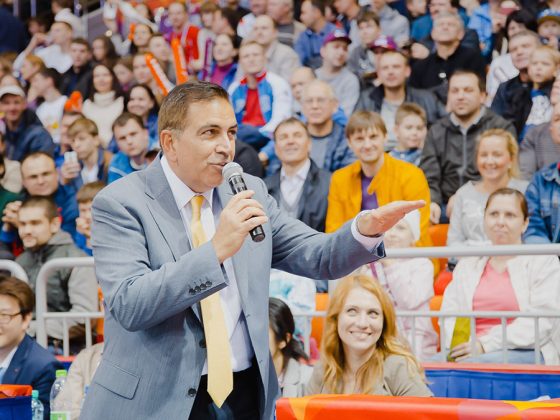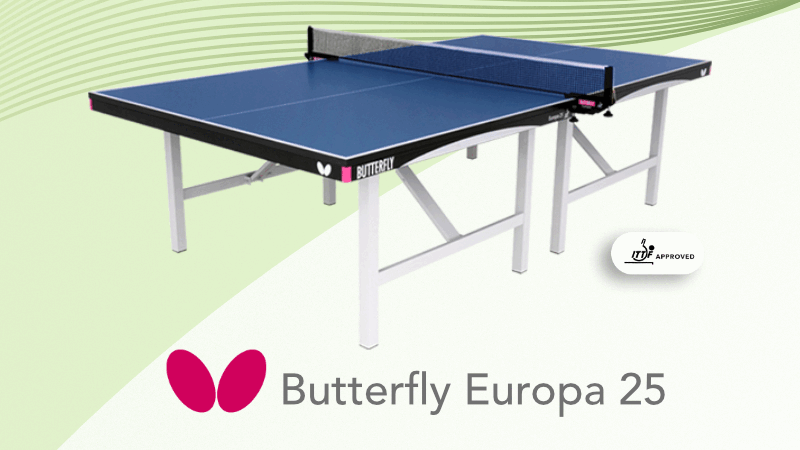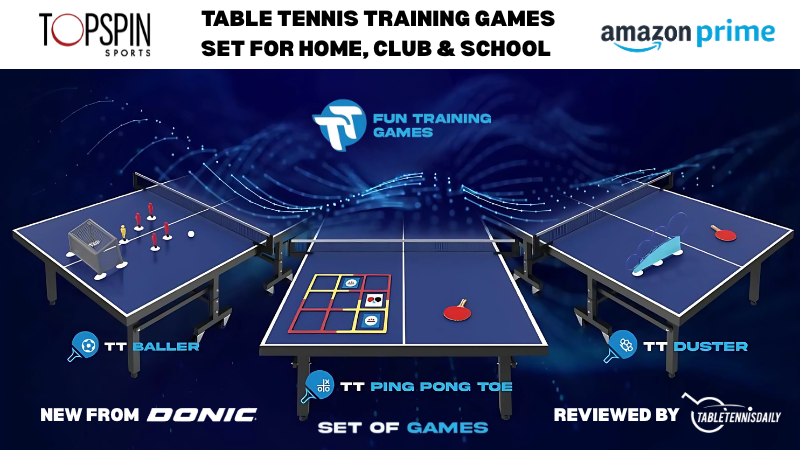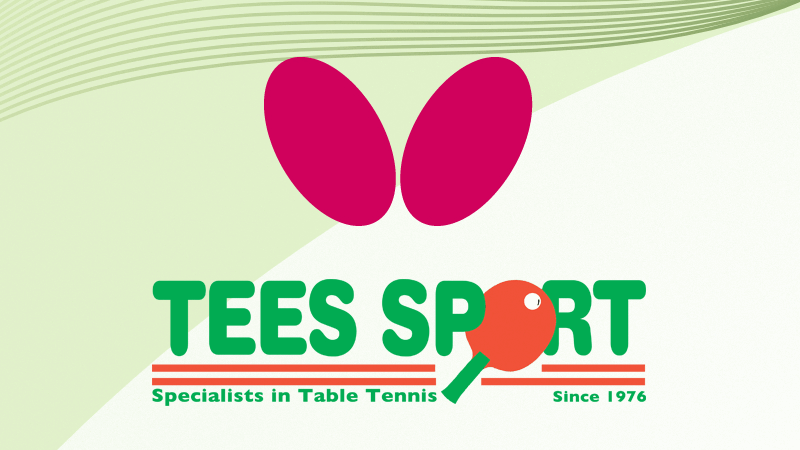If you’ve been in the crowd at a major table tennis event in this country during the last few years, chances are you’ll recognise Andy Ashworth’s voice.
Andy hosted the ITTF Team World Cup at the Copper Box in 2018, the WTT Feeder Manchester this year and the last two editions of the Mark Bates Ltd National Championships – his authoritative yet gentle northern tones keeping spectators informed before, during and after the action.
Whether sitting up in the Gods or on court with microphone in hand, he is becoming known as our very own ‘voice of the balls’ – and it’s a role he will once again perform at the Paris Olympics as English-language host of the table tennis competition.
Andy started as a DJ, going on to become a sports presenter for BBC Radio in the north west.
As he puts it, he “got an appetite for live events” when that position led to him being asked to host regional awards ceremonies and similar events.
That in turn saw him strike up a working relationship with both the British and world taekwondo authorities, leading to him hosting first the World Olympic Qualification event and then the London 2012 taekwondo competition.
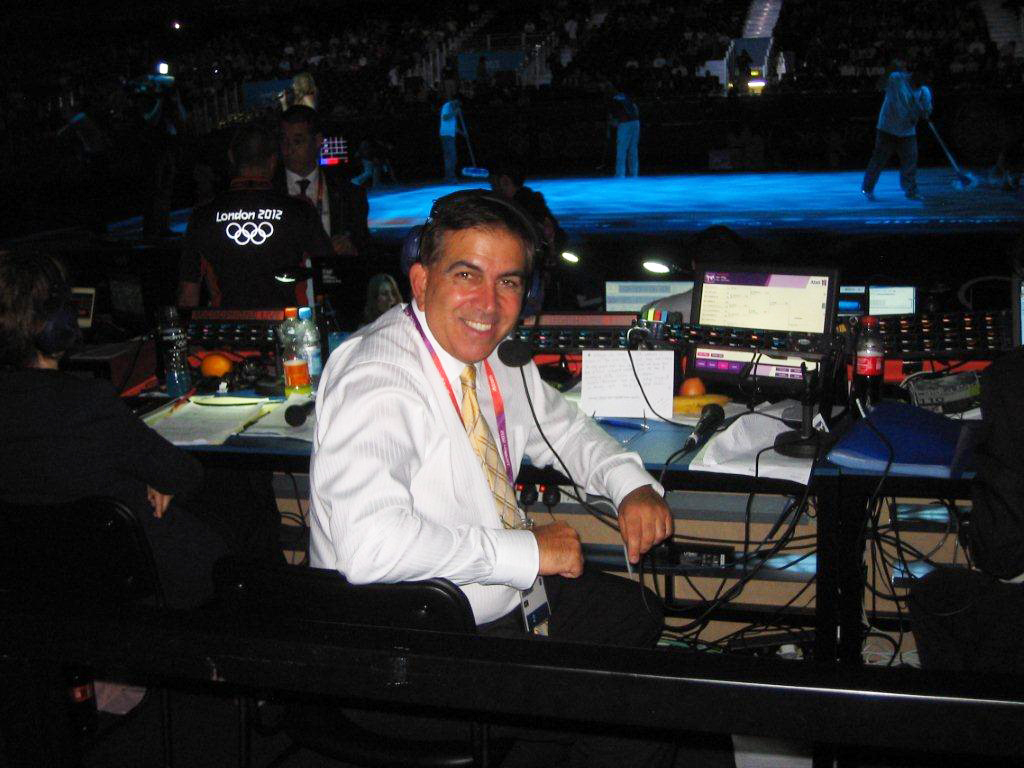
With a growing reputation in his field, Andy picked up the gig as host of the taekwondo at the Rio Olympics in 2016 and was well positioned to add a table tennis string to hid bow.
When the Team World Cup rocked into the Copper Box, he began a relationship with Table Tennis England which has seen him on the microphone at several subsequent events.
He was at the helm for the Tokyo Olympics and the Birmingham Commonwealth Games, as well as last year’s Pan American Games and, although he also numbers tennis, golf, wakeboarding and waterskiing among the sports he has presented, he will split this summer between the two which have given him the most experiences – as table tennis host for Olympics before moving to the taekwondo venue for the Paralympics.
It illustrates the trust placed in him by organising committees – a trust he says was hard won.
“When I started with taekwondo, I had no background in the sport, so I researched and researched and researched,” he said, “and it’s the same with table tennis.
“When you’re a radio sports presenter, you do get a feel for things and I would only be lost if you started to talk in depth about tactics or techniques, but then you would get in a pundit to talk about that – for example, I was alongside Colin Wilson at the World Cup, who has that inside knowledge.
“Some people may say it sounds as if it comes naturally and it’s effortless, but you are only gliding through if you are confident that you’re prepared.
“There’s that famous saying that if you fail to prepare then you prepare to fail. You can walk out confidently if you have prepared.
“Typically for an Olympic Games, I’m looking at three weeks’ preparation – and another two for a Paralympics – looking at stats, going through biographies and looking at what’s relevant and not relevant. Some of it is late-ish on because you don’t want it to be out of date and say, for example, someone is world No 12 when they have just gone up to No 10.
“You can get 99.9% of your facts right, but get 0.1% wrong and they let you know about it – whether that’s the federation, the referee, sometimes even spectators.
“You then start questioning yourself – if I’ve got something wrong, I wonder what else I’ve got wrong. That’s why you do all the research.”
His radio ‘upbringing’ certainly helps. He adds: “What radio taught me was the discipline of meeting what you call junctions, so you might be running up to the news on the hour and you’ve got to hit that junction, otherwise it sounds ridiculous. So you’re speaking and have an eye on the clock, and maybe a producer in your ear, and the news comes on whether you’re ready or not.
“That’s important when you’re working at an Olympic Games because you’ve got different broadcasters coming in from around the world and you’ve got to hit those junctions.
“In the venue maybe you’ve got chat, music, something on the big screen, interviews. It’s a bit like a live event, so the other good discipline I have is writing my own running order. And then of course you rehearse and rehearse.”
Things can go wrong, of course, like the time the lights failed at a snooker event he was presenting, alongside six-time world champion Steve Davis, and he had to fill for 26 minutes.
“The more experience you have, the more you can call on when someone in your ear says you’ve got to fill – and that’s also when you know you’ve done your homework,” he said.
Thoughts of a repeat that are not in his head as he goes into Paris, but the unflappability that comes with experience will ensure he is prepared if the worst happens.
“If someone had told me 20 years ago that I would be about to do my fourth Olympics . . . it shows you have got to be at the top of your game,” he said.
“I don’t take it for granted, which is why I put weeks and weeks of work into it and end up with reams and reams of paper. You’ve got to do your due diligence and do your absolute best if you’re selected.
“To be the English voice of table tennis is such an honour and I’m quite humbled by that.”


